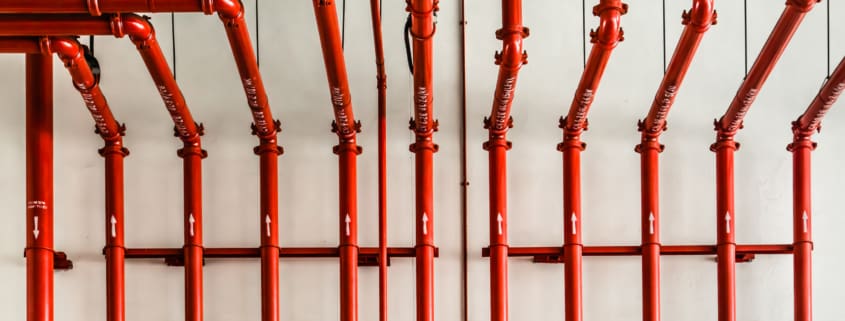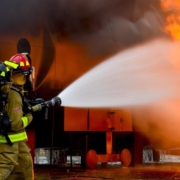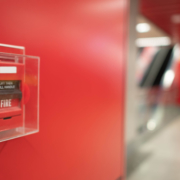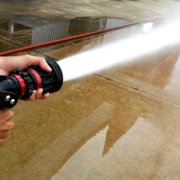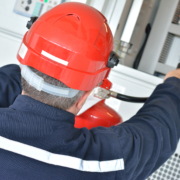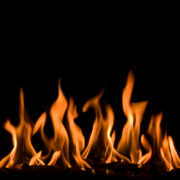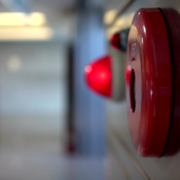How to Avoid the Most Common Fire Sprinkler Obstructions
Fire sprinkler obstructions can hinder the effectiveness of any fire protection system, resulting in costly damages. Luckily, building owners can take steps to prevent these obstructions to ensure their fire system is protecting their commercial property at the highest level of efficiency.
Let’s dive into how to avoid the most common fire sprinkler obstructions; but first, let’s review what fire sprinkler obstructions are and why they happen.
What is a Fire Sprinkler Obstruction?
A fire sprinkler obstruction is any material that causes partial or full blockage of a pipe and prevents water from flowing through.
As you can guess, these blockages stop fire sprinkler systems from doing their job in the event of a fire. Think: If the correct amount of water can’t flow through the pipe properly, the fire system is not able to release the amount of water necessary to reduce heat, flames, and smoke quickly.
Therefore, fire sprinkler obstructions can lead to increased damage to property and even put lives at risk.
Read on for more information about fire protection systems.
What Causes Fire Sprinkler Obstructions?
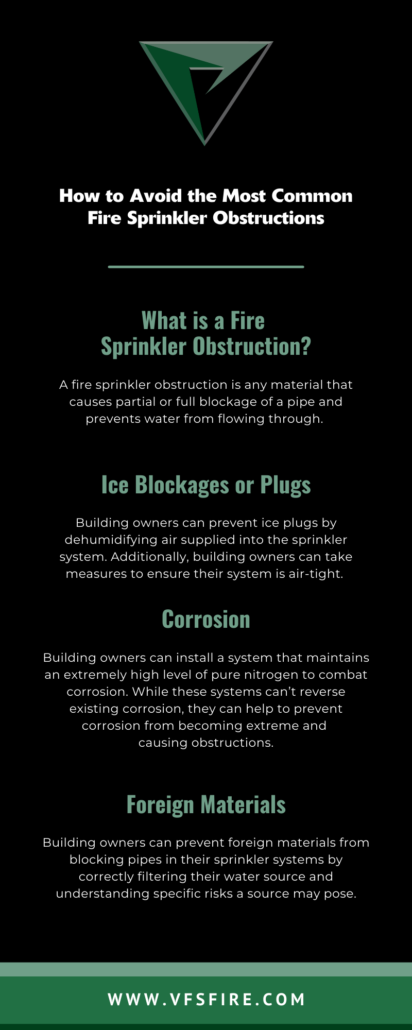
Pipes in fire sprinkler systems can be as small as 1” in diameter. This considered, it doesn’t take much to cause a blockage! Obstructions can be caused by many objects and materials, but some occur more frequently than others. The most common fire sprinkler obstructions are:
- Ice
- Corrosion
- Foreign materials
Let’s review each of these in detail and take a look at some strategies on how to prevent these blockages.
Ice Blockages
When temperatures dip below 32°F, water in pipes may freeze and create blockages in your fire sprinkler system. Water can freeze into solid ice plugs, which can damage your system and prevent water from flowing through the pipes.
Many building owners assume that ice plugs only occur during the winter months; however, ice can form in pipes at any time of year because ice plugs occur most often based on their surroundings in a building, not by the weather. For example, ice plugs most commonly occur in sprinkler systems surrounded by storage or freezer systems.
How to Avoid Ice Plugs in Fire Sprinkler Systems
Building owners can prevent ice plugs by dehumidifying air supplied into the sprinkler system. Most ice plugs are caused by the air supply being cooled as it travels from a heated area into an extremely cold environment, such as near a freezer system.
Moisture collects in the air and freezes once the condensation reaches the cold environment.
By dehumidifying the air going into the system, owners can prevent condensation from freezing and turning into an ice plug. Additionally, building owners can take measures to ensure their system is air-tight.
Read on to learn more about how to prevent your fire system from freezing.
Corrosion
The combination of metal, water, and oxygen in some systems makes it extremely difficult to avoid corrosion entirely. Although corrosion is common in fire sprinkler systems, it usually doesn’t pose a significant risk.
However, when corrosion becomes extreme, obstruction can occur. A few types of corrosion that commonly obstruct fire sprinkler systems include:
- Iron oxide corrosion (i.e. Rust)
- Microbiologically influenced corrosion (MIC), and
- Galvanic corrosion
Read on to learn more about MIC prevention.
How to Avoid Corrosion in Fire Sprinkler Systems
Building owners can install a system that maintains an extremely high level of pure nitrogen to combat corrosion. While these systems can’t reverse existing corrosion, they can help to prevent corrosion from becoming extreme and causing obstructions.
Foreign Materials
Raw or poorly filtered water sources may lead to foreign materials entering and obstructing pipes in a fire sprinkler system. For example, water from rivers or ponds may carry sands or stones. Even if these materials are extremely fine, they can still build up and cause a blockage.
How to Avoid Foreign Materials in Fire Sprinkler Systems
Building owners can prevent foreign materials from blocking pipes in their sprinkler systems by correctly filtering their water source and understanding specific risks a source may pose.
How to Know if Your Fire Sprinkler System is Obstructed
Fire sprinkler systems often don’t show signs of obstruction, which means building owners may not know there is an issue until it’s too late (AKA your system doesn’t work properly when there’s a fire…)
Because of this, the best way to know if your building’s fire sprinkler system is functioning properly is to have the system assessed and inspected. Fire protection system assessments can help property owners determine what repairs are needed to ensure their system will protect their building in the event of a fire.
Not sure if you need servicing? Read on to learn more about how often fire protection systems should be serviced.
Worried Your Fire Sprinkler System Might Have An Obstruction?
Let VFS Fire & Security Services help—fortify your building with reliable fire protection systems inspected and maintained by the experts at VFS!
When systems or devices need maintenance, we most often can send a repair technician to you within 24 hours (and sooner in emergencies!) Our goal at VFS is to be proactive, staying ahead of the curve.
Read on for more information about our testing and inspection services.


